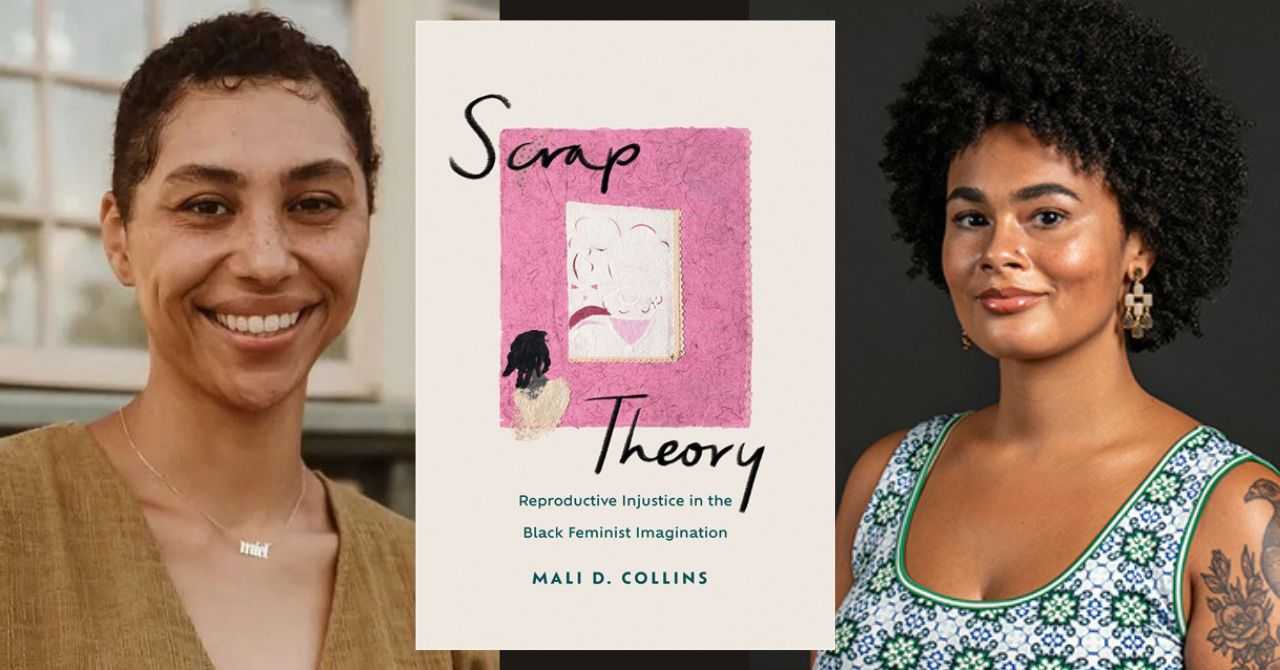- Cafe
- Bookstore
- Upcoming events
- Book an event
- Catering
- Institutional and bulk sales
- About Red Emma's
- Press
- Buy gift cards
- Red Emma's merch
- Donate to the Red Emma's Education Fund

Dr. Mali Collins presents "Scrap Theory: Reproductive Injustice in the Black Feminist Imagination" in conversation w/ Dr. Aja Lan
This event has already happened.
Reproductive justice debates have often focused on the right to not have children, but rarely do they address the right to remember children lost to violence. Focusing on creative works from the late twentieth century through the present, including the writings of Toni Cade Bambara, M. NourbeSe Philip, and Edwidge Danticat; the critical activism of Erica Garner; and visual/material art by Samaria Rice and Elizabeth Catlett, Collins argues that Black women’s creative work should be recognized as memory work that plays a crucial role in the cultural processing of racial and maternal trauma. By centering creative scraps—interstitial, fragmentary, or discarded elements—of maternal dispossession, SCRAP THEORY brings together theories of archival injustice and reproductive injustice to illuminate how the archival erasure of Black motherhood is an urgent concern for the movement for reproductive justice.
Mali Collins, Ph.D is a doula and assistant professor of African American and African Diaspora Studies at American University living in Baltimore, MD. Dr. Collins has published and has forthcoming work in the peer-reviewed journals: American Quarterly, Souls: A Critical Journal of Black Politics, Society, and Culture, National Political Science Review, Frontiers, and The Black Scholar. She has published on popular mediums such as The Feminist Wire, b*tch! Magazine, TheRoot.com, AfroPunk.com, has forthcoming articles on TruthOut.com and The Hastings Center’s online journal. Her creative poems and short stories have been published in SALT: Contemporary Art + Feminism, The HAUNT Journal of Art, and an autobiographical book chapter will be published by Demeter Press in 2022. Her work intersects in the medical humanities, technology, bioethics, and the archival lives of contemporary Black motherhood and family.
Aja completed her PhD in Anthropology at Syracuse University in 2021, where she concentrated in historical archaeology and cultural heritage preservation. Her dissertation and publications integrate Black feminist and critical race theory with bioarchaeological investigations. In her work, she traces the long history of violence against Black women in the United States by merging skeletal data with archival resources. Her research has been supported by the Smithsonian Institution and the Ford Foundation. Her other interests include the ethics of museum collections, the objectification of human remains, and the history of race.

